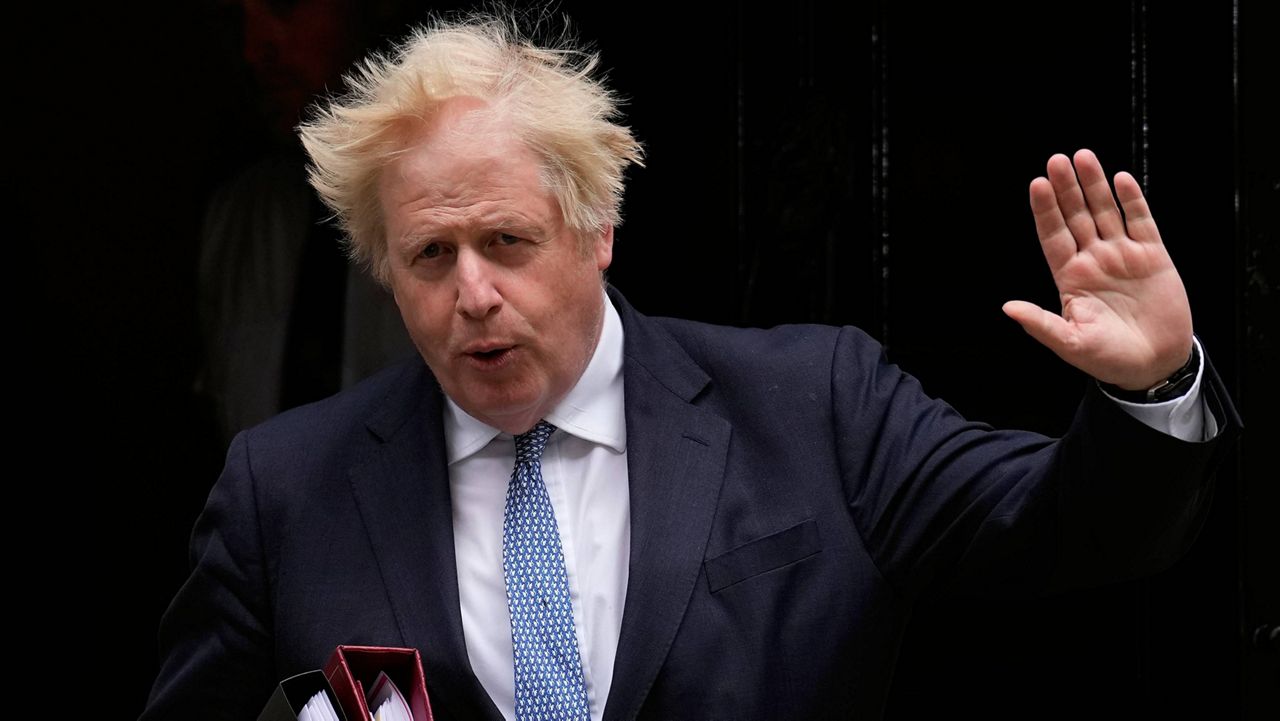British Prime Minister Boris Johnson narrowly survived a no-confidence vote Monday that could have ousted him from power amid criticism that he and his staff held boozy parties that flouted the COVID-19 restrictions they imposed on others.
The final vote was 211-148, with nearly 40% of Johnson's party voting against him; 180 votes were needed to remove Johnson from power.
Despite surviving the vote, Monday's action could be the beginning of the end for the Conservative leader. His predecessor, fellow Tory Theresa May, survived a no-confidence challenge in 2018 following her failed Brexit deal, but resigned the next year. Johnson's margin is less than that secured by May.
Former Prime Minister Margaret Thatcher, another Conservative and polarizing figure in the United Kingdom, also resigned following a no-confidence vote in 1990.
According to a recent Morning Consult survey, Johnson's approval has fallen to 29%.
Known for his ability to shrug off scandals, the charismatic leader has struggled to turn the page on the lockdown parties, a scandal dubbed "partygate." Support among his fellow Conservative lawmakers has weakened as some see the leader, renowned for his ability to connect with voters, increasingly as a liability rather than an asset in elections.
With no clear front-runner to succeed him, most political observers had predicted he would defeat the challenge. But the rebellion represents a watershed moment for him — and is a sign of deep Conservative divisions, less than three years after Johnson led the party to its biggest election victory in decades.
Since taking the helm in 2019, Johnson has led Britain out of the European Union and through a pandemic, both of which have shaken the U.K. socially and economically. The vote comes as Johnson’s government is under intense pressure to ease the pain of skyrocketing energy and food bills
Discontent that has been building for months erupted after a 10-day parliamentary break that included a long weekend of celebrations of Queen Elizabeth II’s Platinum Jubilee. For many, the four-day holiday was a chance to relax — but there was no respite for Johnson, who was booed by some onlookers as he arrived for a service in the queen’s honor at St. Paul’s Cathedral on Friday.
Civil service investigator Sue Gray probed alcohol-fueled bashes held by Downing Street staff members in 2020 and 2021, when pandemic restrictions prevented U.K. residents from socializing or even visiting dying relatives.
Gray said the “senior leadership team” must bear responsibility for “failures of leadership and judgment.”
Johnson also was fined $63 by police for attending one party, making him the first prime minister sanctioned for breaking the law while in office.
The prime minister said he was “humbled” and took “full responsibility” — but insisted he would not resign. He urged Britons to “move on” and focus on righting the battered economy and helping Ukraine defend itself against a Russian invasion.
But a growing number of Conservatives feel that Johnson is now a liability who will doom them to defeat at the next election, which must be held by 2024.
“Today’s decision is change or lose,” said Jeremy Hunt, who ran against Johnson for the Conservative leadership in 2019 but has largely refrained from criticizing him since. “I will be voting for change.”



